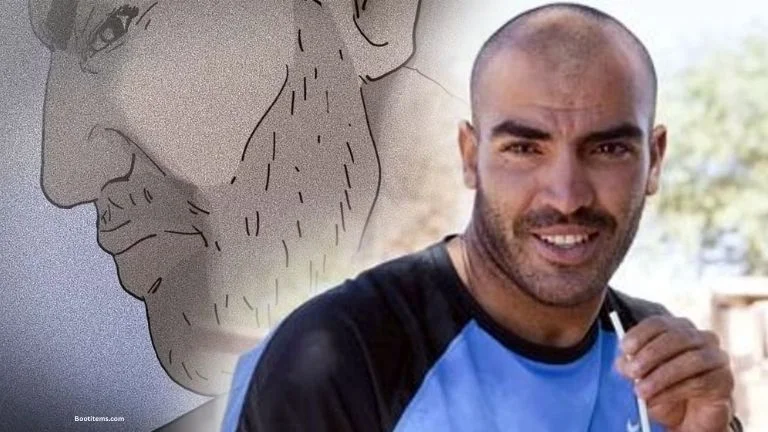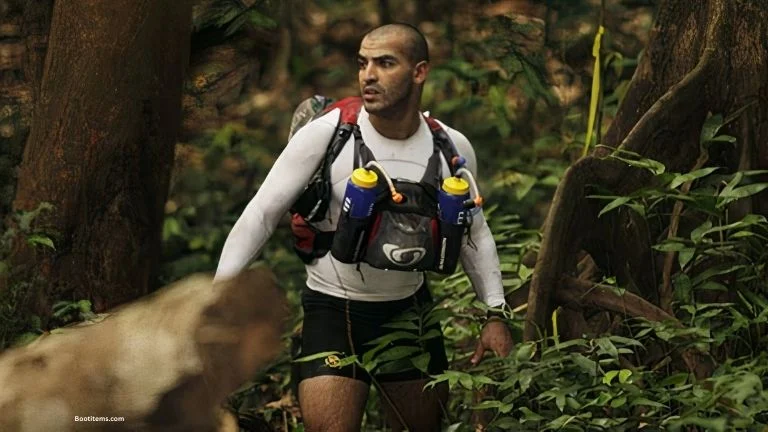Youssef Khater: The Danish Fraudster’s Criminal History
Youssef Khater is a Danish-Lebanese fraudster convicted of attempted murder in Chile and fraud in Denmark, and featured in Netflix’s “Worst Roommate Ever” series.
Who is Youssef Khater?
Youssef Khater, born March 19, 1978, in Lebanon, gained notoriety after being featured in Season 1, Episode 3 of Netflix’s documentary series “Worst Roommate Ever.” The episode titled “Marathon Man” details his criminal activities and the shocking attempted murder case that brought him international attention. Khater holds both Lebanese and Danish citizenship and has used his dual nationality to evade justice across multiple countries.
Early Life and Military Career
Before becoming known as a dangerous con artist, Khater served for ten years in the Royal Danish Navy. His military career ended at age 28 when he was dishonorably discharged for fraud. This early instance of fraudulent behavior would prove to be just the beginning of his criminal career.
Details about Khater’s early life are limited, largely because he has been a prolific liar throughout his adult life. He has fabricated various aspects of his background to gain trust from potential victims. One common claim he made was that he had served in Danish special forces, though this has never been verifiev.
Youssef Khater’s Criminal Activities
Khater’s criminal record spans multiple countries and includes various types of fraud, attempted murder, and other serious offenses. His pattern typically involves creating false identities, building trust with potential victims, and then exploiting that trust for financial gain.
Crimes in Denmark
Khater’s criminal history began in Denmark, where he was arrested in 2009 on multiple charges including fraud, arson, embezzlement, and forgery. However, he failed to appear for his scheduled trial in January 2011, having fled to Chile to escape Danish authorities.
The Chile Marathon Con
While in Chile, Khater created a new identity for himself as a Palestinian marathon runner. He claimed to be sponsored by the Federacion Palestina de Chile to set a record by running the entire 2,653-mile length of Chile. This fabricated athletic identity allowed him to secure sponsorships and financial backing from sympathetic supporters.
Carlos Medina and Carlos Krauss, members of the Federacion Palestina, provided Khater with $8,000 to support his supposed marathon attempt. When questions arose about his participation, Khater claimed he had to withdraw due to a muscle tear in his leg. However, when medical examinations revealed no injury, he stopped responding to his sponsors’ inquiries.
The British Athlete Fraud
One of Khater’s most significant frauds in Chile involved Dominic Rayner, a British marathon runner. Khater managed to con Rayner out of approximately $50,000 by convincing him to invest in athletic gear and property. According to reports, Rayner gave Khater $12,000 for athletic equipment and an additional $38,000 for a joint property purchase.
When Rayner eventually confronted Khater about the money in Santiago, Khater attacked him with a walking stick during a hike, cracking Rayner’s head. After the attack, Khater begged Rayner not to report the incident. However, upon returning to London, Rayner reported Khater to both the British Metropolitan Police Service and Interpol.
The Attempted Murder of Callie Quinn
The most shocking of Khater’s crimes, and the one that received the most attention in the Netflix documentary, was his attempted murder of Callie Quinn, a woman from Texas who was living in the same hostel as Khater in Chile.
Khater had convinced Quinn and a friend to rent condos he claimed to have purchased, collecting $1,000 in security deposits from them. As his fraudulent activities began to unravel, Khater lured Quinn to a tire shop in Santiago, where he attacked her by hitting her over the head with a toilet seat and then buried her alive. Miraculously, Quinn survived the attack and was able to file a police report against Khater.
Youssef Khater’s Arrests and Convictions
Despite his attempts to evade justice, Khater has faced legal consequences for some of his crimes, though many argue his punishments have been insufficient given the severity of his offenses.
Arrest and Conviction in Chile
After Quinn’s attack and the subsequent police report, Khater initially disappeared. However, Chilean authorities eventually apprehended him on August 9, 2011, through a sting operation. They arranged for a woman to send him a wire transfer and waited for him to meet with the sponsor he had asked to collect it.
Initially, Khater denied responsibility for the attack on Quinn. Later, he confessed to hitting her over the head but claimed he had no intention of killing her. A judge found him guilty of attempted murder and sentenced him to 541 days in prison. He received an additional 61 days for fraud charges.
Extradition to Denmark
Having served more than half of his sentence while awaiting trial in Chile, Khater was released after approximately one year and extradited to Denmark to face the charges he had fled from in 2011. In Denmark, he was acquitted of three of the five charges against him and was released after serving just three months in prison.
Where is Youssef Khater Now?
One of the most disturbing aspects of Khater’s story is that despite his violent crimes and multiple fraud convictions, he remains free and, according to reports, continues his criminal activities around the world.
Recent Sightings and Activities
After his release from Danish prison, Khater resumed his fraudulent activities across multiple countries. In 2014, he was reportedly wanted by police in Quepos, Costa Rica, after allegedly seducing a Canadian traveler, stealing $19,000 of her life savings, and attempting to smother her with a pillow when she discovered his true identity.
During this period, he began using the alias “Joseph Carter” to hide his notorious past. Under this name, he allegedly convinced a Texas resident named Todd Flanders to place a $3,500 order for sportswear and offered to supply discounted mobile phones for resale, which never materialized.
In 2015, Khater participated in a marathon in Costa Rica, using the event as a platform to launch new cons. By 2017, he was arrested for fraud in Puerto Viejo de Talamanca but was subsequently released.
The Tracking Blog
Carlos Medina, one of Khater’s former financial backers who was defrauded in Chile, started a WordPress blog called “Youssef Khater – Scammer” to track sightings of the notorious fraudster and warn potential victims. This blog has become a crucial resource for documenting Khater’s movements and ongoing criminal activities.
According to the blog, Khater was jailed in Nicaragua in 2019 for fraud but was extradited back to Denmark by the end of that year. Despite these legal troubles, he reportedly continues to scam people through various fake identities.
Most Recent Whereabouts
The most recent confirmed sightings of Youssef Khater were in the town of Hjorring, Denmark, in early 2023. Prior to this, he was reportedly living between the Italian island of Sardinia and France’s Corsica in 2022.
It remains shocking that despite his numerous attempted murders and fraud convictions, Khater continues to move freely around the world, potentially putting more unsuspecting victims at risk.

The Netflix Documentary: “Worst Roommate Ever”
Youssef Khater’s crimes received international attention when they were featured in Netflix’s documentary series “Worst Roommate Ever,” which premiered in 2022. The series focuses on five different cases of people who had horrific experiences with roommates who turned out to be dangerous criminals.
“Marathon Man” Episode
Episode 3 of the series, titled “Marathon Man,” focuses specifically on Khater’s time in Chile during the early 2010s and his crimes against Callie Quinn and others. The episode features Quinn herself as a narrator, recounting her terrifying experience living with Khater and surviving his murder attempt.
The documentary highlights how Khater used his fabricated identity as a Palestinian marathon runner to gain the trust of those around him before exploiting them financially and, in Quinn’s case, attempting to kill her when his schemes began to unravel.
Impact of the Documentary
The Netflix series has significantly increased public awareness of Khater’s crimes and his ongoing threat to society. By bringing his case to a global audience, the documentary has potentially made it more difficult for him to continue his cons, as more people can now recognize his face and be aware of his methods.
However, as the tracking blog and recent sightings indicate, Khater continues to find new victims despite this increased visibility, often by changing his appearance and using new aliases.
Understanding Youssef Khater’s Modus Operandi
Examining Khater’s pattern of criminal behavior reveals consistent methods that he has used across multiple countries and with numerous victims.
Creating False Identities
A key element of Khater’s approach is creating compelling false identities that help him gain trust and sympathy. His most successful persona was that of a Palestinian marathon runner, which allowed him to appeal to people’s desire to support an underdog athlete from a politically sympathetic background.
Building Trust with Potential Victims
Khater excels at building relationships with his targets before exploiting them. He often lives in close proximity to his victims, such as in shared housing or hostels, allowing him to establish daily interactions and build trust over time.
Financial Exploitation
Once trust is established, Khater typically moves to financial exploitation. This can take various forms, including:
- Requesting loans or investments for fabricated business ventures
- Collecting deposits for properties he doesn’t own
- Securing sponsorships for athletic events he never intends to complete
- Convincing victims to purchase goods that never materialize
Escalation to Violence
Perhaps the most disturbing aspect of Khater’s criminal pattern is his willingness to escalate to violence when his fraudulent activities are discovered. This was evident in his attacks on both Callie Quinn and Dominic Rayner when they began to uncover his deceptions.
Fortnite’s Musical Reef Glider
The Psychology Behind Youssef Khater’s Crimes
While a complete psychological profile of Khater is not publicly available, his pattern of behavior exhibits several traits commonly associated with certain personality disorders and criminal mindsets.
Pathological Lying
Khater demonstrates an extensive pattern of pathological lying, creating elaborate false narratives about his background, accomplishments, and intentions. His lies are not merely opportunistic but form the foundation of his identity and interactions with others.
Lack of Empathy
His willingness to physically harm those who trusted him, particularly the brutal attempted murder of Callie Quinn, suggests a profound lack of empathy for others. This trait is commonly associated with antisocial personality disorder and psychopathy.
Calculated Manipulation
Khater’s cons are not impulsive but carefully calculated. He selects his victims strategically, builds relationships over time, and plans his frauds in detail. This level of premeditation indicates a highly manipulative personality.
Geographic Mobility as Evasion
His pattern of moving between countries when his crimes are discovered shows an understanding of how to exploit international legal boundaries to avoid consequences. This demonstrates both intelligence and a complete disregard for legal and moral standards.
Lessons from the Youssef Khater Case
The case of Youssef Khater offers several important lessons about personal safety, trust, and the limitations of international justice systems.
Verifying Claims and Identities
Khater’s success relied heavily on people accepting his claims without verification. In today’s digital age, it’s increasingly important to verify the identities and backgrounds of people we allow into our lives, especially when financial transactions are involved.
Recognizing Red Flags
Throughout Khater’s cons, there were numerous red flags that, in retrospect, might have alerted victims to his true nature. These included inconsistencies in his stories, requests for money, and evasive behavior when questioned about his claims.
Gaps in International Justice
Perhaps the most troubling aspect of Khater’s case is how he has been able to exploit gaps in international justice systems to avoid serving appropriate sentences for his crimes. His ability to move between countries and continue his criminal activities highlights significant challenges in addressing transnational crime.
Protecting Yourself from Similar Predators
While it’s impossible to completely eliminate risk when interacting with new people, there are steps individuals can take to reduce their vulnerability to predators like Khater.
Research Before Financial Commitments
Before making any financial commitments with new acquaintances, conduct basic research. In today’s digital age, legitimate professionals, athletes, and businesspeople typically have some online presence that can be verified.
Maintain Healthy Skepticism
While building community and trust is important, maintaining a healthy level of skepticism about extraordinary claims can provide protection. If someone’s story seems too good to be true or has inconsistencies, it’s reasonable to seek verification.
Trust Your Instincts
Many victims of con artists report having initial misgivings that they ignored. Trusting your instincts when something feels wrong can be an important form of self-protection.
Be Cautious with Personal Information
Limit the amount of personal and financial information you share with new acquaintances until trust has been firmly established over time.

Samantha Yates is a creative writer and journalist with expertise in content creation and editing. She holds an MA in Creative Writing and brings professional experience from Lionbridge, where she developed engaging content for leading technology companies







